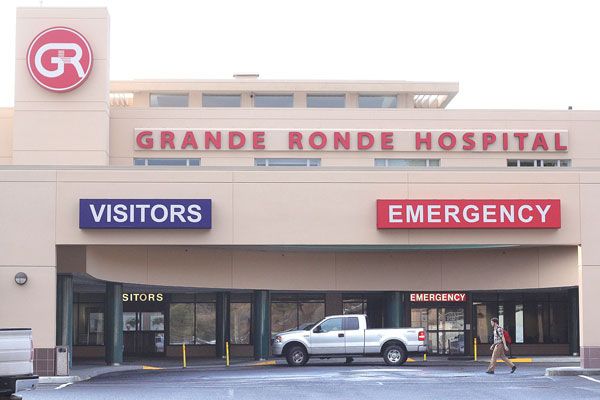Grande Ronde hospital wary of 96-hour rule
Published 8:52 am Friday, February 14, 2014

- Grande Ronde Hospital CEO Jim Mattes says that while the Medicare rule limiting stays in Critical Access Hospitals for Medicare patients to 96 hours only affects Medicare patients, that is a big dent to GRHs services. (PHIL BULLOCK/The Observer)
Hospital officials: Medicare rule impedes medicine, adds stress
Trending
While much of the nation has eyed mishaps with the implementation of the Affordable Care Act, Grande Ronde Hospital officials say there’s another rule that has them concerned.
Since last fall, the hospital has been figuring out how to grapple with the sudden enforcement of a years-old Medicare rule limiting stays in Critical Access Hospitals for Medicare patients to 96 hours.
The regulation was implemented more than 15 years ago, hospital officials say, but Medicare payments to the CAH haven’t been withheld if the rule is not followed – until Jan. 1.
Trending
Grande Ronde Hospital CEO Jim Mattes says that while the rule only affects Medicare patients, that is a big dent to GRH’s services.
“We have about 200 Medicare patients a year who stay more than 96 hours,” he said. “Ironically, they’re our sickest, most frail, vulnerable patients.”
The rule requires the admitting physicians to make a determination as to whether the Medicare patient’s stay will last more than 96 hours, or four days. If it will, the patient must be transferred to another facility.
“They have to look into their crystal ball,” said hospital spokeswoman Mardi Ford, though the officials noted that there are exceptions to the rule if complications arise.
GRH officials say the enforcement of this rule creates a tough situation for all involved, especially the patients. Ford says the hospital has spent years working to ensure that patients can be treated locally rather than having to travel for services. One source of pride for Grande Ronde Hospital is its telemedicine services, which enable patients in La Grande to access doctors around the world. Now Medicare patients may have to travel, often with elderly family, to get those same services.
“Then they’re no longer being cared for by their primary care physician,” or other health professionals they are used to dealing with locally, Mattes said. “The patients are the victims in the effort to enforce the 96-hour rule.”
The CEO said patients may also incur more needless expenses, from transportation and potentially duplicated procedures.
In addition to patient stresses, Mattes said the physicians can become anxious when having to hand off patients.
On the business side of things, the rule will result in revenue loss, the hospital officials say.
Since Jan. 1, GRH transferred seven patients under the rule with an estimated transportation cost totaling about $200,000. A typical admission typically nets GRH $18,000. Multiplied by seven, that is what the hospital has already lost in 2014, officials said.
“Nobody wins,” Ford said.
Mattes said his hospital staff has spent the past few months trying to anticipate the rule’s enforcement. They launched a swing-bed program as soon as they could and admitted their first patient into that program a couple weeks ago.
The officials say they are working with members of Congress. At least one bill has been introduced in Congress that would amend the rule. The CAH Relief Act, sponsored by Adrian Smith (R-Neb.), Greg Walden (R-Ore.), Lynn Jenkins (R-Kan.) and David Loesback (D-Iowa) would eliminate the requirement for a physician to verify a patient will not stay more than 96 hours.
GRH’s CEO, however, isn’t convinced Congress will quickly pass a solution.
“A legislative fix could be a very long time in the making,” Mattes said.









